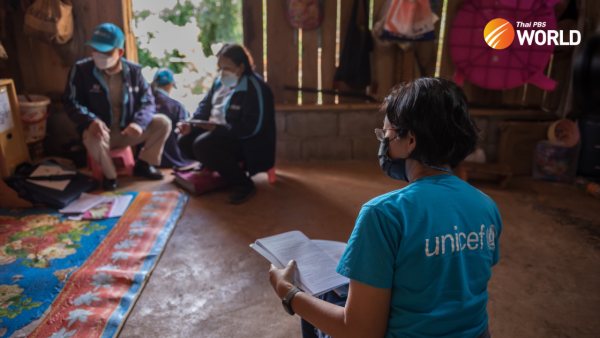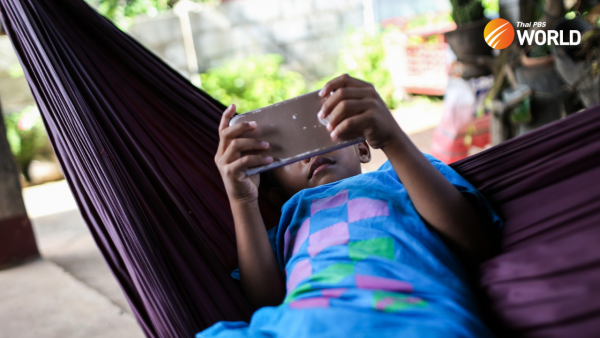Thailand increases breastfeeding, reduces adolescent births and violence

Thailand is making good progress on child wellbeing in many areas, including a rise in breastfeeding, declining adolescent birth rates and less violence against children at home, according to the latest national survey by the National Statistical Office (NSO) and UNICEF. The survey also, however, reveals worrying trends in early childhood development, education, nutrition and child marriage.
The largest national survey on the situation of children and women in Thailand, or the Multiple Indicator Cluster Survey (MICS), is conducted every three years and examines 130 factors affecting the well-being of children and women, including health, development, education and child protection.
The latest, MICS 2022, collected data from 34,000 households across the country between June and October 2022, at the same time as the country began to relax its COVID-19 restriction measures.
“The findings serve as a useful tool for shaping policies and implementing measures aimed at enhancing the quality of life for children in Thailand, as well as monitoring the progress of the Sustainable Development Goals (SDGs),” said Dr. Piyanuch Wuttisorn, Director General of the National Statistics Office.
According to the survey, Thailand’s adolescent birth rate decreased from 23 per 1,000 women aged 15-19 years in 2019 to 18 in 2022. It is also a big improvement from 51 in 2015.
Another improvement seen is in the prevalence of violent discipline at home, which has decreased from 75% in 2015 to 58% in 2019 and 54% in 2022. The 2022 survey also found that fewer men and women accepted domestic violence as “justified in some circumstances”.
Also a positive development was that 29% of children were exclusively breastfed for the first six months of their lives in 2022, compared with just 14% in 2019. In addition, the survey found that more mothers continued to breastfeed their babies for longer than six months.

Worrying finds
The survey results also reveal negative trends in education and child development, compared with the last survey conducted before the COVID-19 pandemic. MICS 2022 shows 75% of children aged between 3 and 4 attended early childhood education in 2022, compared with 86% in 2019.
In addition, levels of pre-primary school learning have dropped, from 99% of children in 2019 who benefited from some form of pre-primary education to 88% in 2022. The trend was reflected in school readiness (being adequately prepared socially, emotionally, linguistically, physically and cognitively to begin structured learning), which fell from 99%to 94%.
MICS 2022 also revealed that more children of primary education age stayed out of school in 2022 than in 2019. This figure increased from 1% to 4%. In lower secondary schools, the out-of-school rates increased from 3% to 5%. Yet, the out-of-school rate was highest in upper secondary schools, at 15%in 2022.
Another concern was an increase in the time young children spent playing on electronic devices during the COVID-19 pandemic. Prolonged use of electronic devices can have negative effects on child development. Around 62% of children under 5 now play with electronic devices, some of them now spend up to three hours or more playing on devices each day. As more children have access to and spend more time playing with electronic devices, fewer children read books at home. Children’s literacy and numeracy skills are also deteriorating.
At the same time, fewer parents and household members engaged with their children, to promote their learning and development, spending less time with their children in activities that stimulated learning at home.
“The MICS 2022 data confirms the devastating and lingering impact of the pandemic, especially on education. It has jeopardised children’s development and pushed many of them out of school. It is essential that Thailand invests in quality education, health and social protection systems to close the gap and ensure that children can live up to their full potential and help the country achieve a prosperous and sustainable future for all,” said Kyungsun Kim, UNICEF Representative for Thailand.







